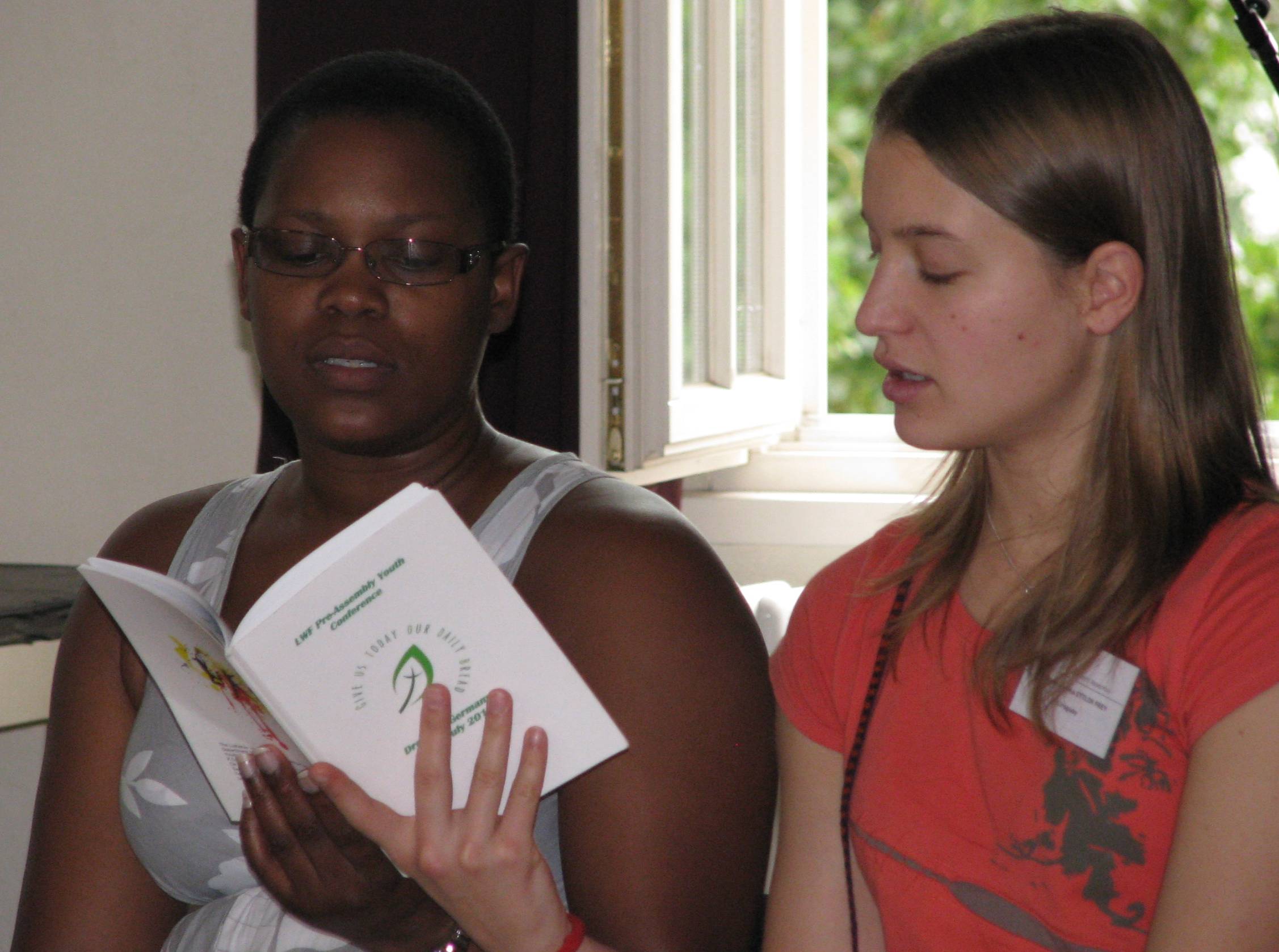| ←Bible Study on Psalm 104 | Overview | Bible Study on Leviticus→ |
|---|
Creator, Creation and Creatures
In the beginning God created the heavens and the earth (cf. Gen 1:1). This is the underlying conviction of the Bible and of all Christians. In creation, God, the Creator, brings forth the created order. While the creation stories at the beginning of the Bible clearly distinguish between human beings and other parts of the created order, already here it is very clear that God, the Creator, has a relationship with the whole of creation. There is no room for the forceful oppression of nature by some creatures (i.e., human beings). This concept becomes even more pronounced later on in the Bible. According to John 1, everything is created through the Word of God (later identified with Jesus, the Christ). In Romans 8, Paul speaks of how human beings and all other creatures wait for redemption in Jesus Christ. God loves all God’s creatures.
The Triune God
Confessing the Triune God in Father, Son, and Holy Spirit means believing in a God in relationship. The Christian understanding of God does not emphasize an entity distant from all struggles of life. God is not the unmoved mover who observes the world from afar. On the contrary: in Godself, God is already the vibrant and loving relationship between Father, Son, and Holy Spirit. But that remains also true in the relationship with the whole of creation. This becomes especially clear when Christians speak about incarnation. This word means that the Son, the second person of the Trinity, becomes a human being, becomes flesh, as Martin Luther emphasizes in his theology of the cross. We do not meet God distant from creation. Quite the opposite: we encounter God when we see Jesus Christ on the cross. We encounter God when we see the suffering creation.
Trinitarian theology describes God’s interrelated gracious movement. “God is the source, the power and the goal—the spirit that enlivens the complex process of creation. God is the source of all being rather than one who intervenes from the outside” (Bloomquist, 19f).
Justice and the Ecological Crisis
The injustice towards nature is self-explanatory. In order to secure their survival—or simply to make their lives more comfortable—humans destroy parts of nature, polluting air, land, and water. Thus they seriously reduce biodiversity and extinguish entire species.
There is also the second dimension: human beings are unjust toward one another. Excessive consumption on the part of some destroys nature and seriously impacts other parts of humanity. The many ecological issues, such as climate change, bear witness to this. People in the industrialized countries have been making excessive use of technologies that emit high amounts of carbon dioxide and other climate changing gases. The tragic truth is: people in the North are wasting resources that belong to all. The first to suffer are the people in the South who have never contributed to this destruction.
Throughout the Bible, justice is a major concern. In Amos 5, the prophet accuses his listeners of oppressing the poor and of unjust practices and announces the Word of God: “But let justice roll down like waters, and righteousness like an ever-flowing stream” (Am 5:24). At the very beginning of his ministry, Jesus refers to major justice related texts from the Hebrew Bible: “The Spirit of the Lord is upon me, because he has anointed me to bring good news to the poor. He has sent me to proclaim release to the captives and recovery of sight to the blind, to let the oppressed go free, to proclaim the year of the Lord’s favor” (Lk 4:18–19).
How can we get closer to discussing justice in connection with the ecological crisis? In a helpful way, Christoph Stueckelberger distinguishes between the different aspects of justice that need to be fulfilled when confronting a crisis:
“Capability related justice meant that every person and institution has the duty to contribute to solving problems on the basis of their ability.”
| ←Bible Study on Psalm 104 | Overview | Bible Study on Leviticus→ |
|---|

